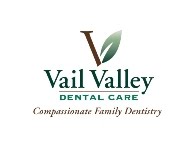Pregnant woman's gingivitis caused baby to be stillborn, scientists say
By Linda Carroll
msnbc.com contributor
updated 6:43 a.m. MT, Fri., Jan. 22, 2010
Pregnant women with untreated gum disease may have more at stake than just their teeth. They may also be risking the lives of their babies, a new study shows.
Expectant mothers have long been warned that gum disease can cause a baby to be born prematurely or too small. But for the first time scientists have linked bacteria from a mother’s gums to an infection in a baby that was full-term but stillborn, according to the study which was published Thursday in Obstetrics and Gynecology.
Scientists from Case Western University made the discovery after a 35-year-old California woman contacted them to help investigate the death of her baby. Earlier studies by the same researchers showed that an oral bacteria called Fusobacterium nucleatum could spread from the bloodstream to the placenta in mice. The woman wanted to know if it was possible in humans.
Bacteria from the mouth can easily get into the bloodstream once a woman's gums are bleeding, explains the study’s lead author Yiping Han, an associate professor of periodontics and pathology at Case Western University. Generally, this type of bacteria can be easily combated by the immune system of the mom-to-be, whether mouse or human. But because of special conditions that exist in the womb, the fetus can be more susceptible, Han suspects.
“Once the bacteria are in the blood, they can go almost anywhere,” Han says. “The placenta is an immuno-suppressed organ, compared to other organs like the liver and the spleen. And that makes it easy for the bacteria to colonize the placenta.”
The California woman told researchers that she had experienced heavy bleeding from her gums — a sign of gum disease — during her pregnancy. Bleeding gums aren’t unusual in pregnant women, with about 75 percent developing the condition due to normal hormonal changes. Mild gum disease can be treated simply by brushing and flossing more often. Pregnant women with more serious cases may need dental surgery.
Usually women’s uterine infections, which can harm a fetus, are caused by bacteria that work their way up from the vaginal canal, says Han. But the researchers detected a bacteria in the baby not typically found in the vaginal region. Plaque samples from the woman’s teeth were found to be positive for the exact same strain of the oral bacteria found in the dead baby’s stomach and lungs.
Women shouldn’t be overly alarmed by the new study, says Dr. Richard H. Beigi, an obstetric infectious disease specialist and an assistant professor of reproductive science at the University of Pittsburgh Medical Center.
“This is just one case,” he explained. “Most pregnant women have bleeding gums and most don’t have dead babies. This can happen, but it’s rare. And this finding doesn’t mean that it’s increasing.”
Still, Beigi says, it should serve as a reminder that pregnant women with bleeding gums should see a dentist to treat their gingivitis. Gingivitis can increase the risk of preterm birth anywhere from twice to seven times, studies indicate.
The new study underscores the importance of oral hygiene not only for pregnant women, but also for those contemplating pregnancy, says Dr. Michael Lu, an associate professor of obstetrics, gynecology and public health at the University of California Los Angeles Medical Center.
“We know that gingivitis doesn’t happen overnight and that it’s important for women to enter pregnancy in good health,” Lu says. “I would love to see every woman who is contemplating pregnancy get pre-conception care that includes an oral-health check-up.”
Linda Carroll is a health and science writer living in New Jersey. Her work has appeared in The New York Times, Newsday, Health magazine and SmartMoney.
© 2010 msnbc.com. Reprints
URL:
http://www.msnbc.msn.com/id/34979552/ns/health-pregnancy/?gt1=43001










